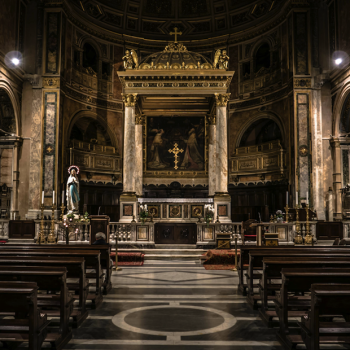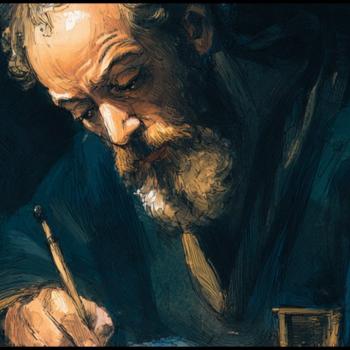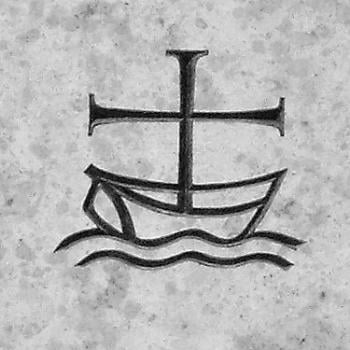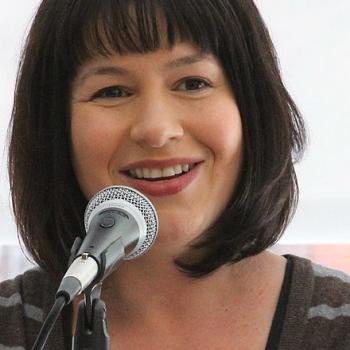Anyone with a smattering of knowledge about the New Testament knows that the English word apostle is derived from a Greek word meaning "messenger," specifically a special messenger or envoy. In the early Church the word was used in several ways. Indeed, the use of the word after Paul appears to have been more ambiguous than it was in the early Church (Anchor Bible Dictionary, s.v. apostle).
Mormon usage of the term is in line with one of the common New Testament meanings. According to 2 Peter 3:2, the work of the apostles was to convey the teachings of the prophets and of Jesus to the Church. Jude understands the apostles themselves also to be prophets, those who speak the words of Jesus Christ. But perhaps the definition in Acts 1:21-22, as someone who was with Christ throughout his ministry, is the most relevant for Latter-day Saints.
As 1 Corinthians 9:1 suggests, one of the distinctive features of an ancient apostle was that he could testify of Jesus' resurrection. One of Joseph Smith's revelations (Doctrine and Covenants 107:23) gives the relevant definition of an apostle for Mormons: "The twelve traveling councilors are called to be the Twelve Apostles, or special witnesses of the name of Christ in all the world."
Obviously contemporary Mormon apostles were not with Jesus from the time of his baptism by John the Baptist through his resurrection and post-mortal forty-day ministry. Nevertheless, like the ancient apostles they are called to be witnesses of his life and resurrection. As the revelation of D&C 107 makes clear, they are specifically called as witnesses of the name Christ, in other words of the fact that the person Jesus is the Messiah. Their calling is to witness that Jesus of Nazareth is the One Anointed by the Father for the salvation of humankind.
Those who hold the office of Apostle in the LDS Church today are (in order of seniority):
Boyd K. Packer. Elder Packer is president of the Quorum by virtue of his seniority. Before being ordained and set apart as an Apostle, he was an educator for the LDS Church's seminary program, an extracurricular educational program for high school students. Elder Packer and his wife, Donna, have ten children.
L. Tom Perry. Elder Perry and his wife, Virginia (deceased), have three children. He spent his secular career as a businessman, much of it in Boston.
Russell M. Nelson. Elder Nelson was a heart surgeon prior to his call to the Twelve. He is the father of ten children; their mother (deceased) was Dantzel White Nelson.
Dallin H. Oaks. Elder Oaks is a former lawyer, law professor, university president, and Utah Supreme Court judge. He and his first wife (June, deceased) have six children.
M. Russell Ballard. Elder Ballard was a businessman, working primarily in real estate and automobiles. His wife, Barbara, and he have seven children.
Richard G. Scott. Elder Scott was a nuclear engineer. His wife, Jeanene (deceased) and he have seven children, five of whom lived to adulthood.
Robert D. Hales. Elder Hales and his wife, Mary, are the parents of two children. He is a former business executive.
Jeffrey R. Holland. Elder Holland has been an educator in American religious history, and the dean of religion at Brigham Young University as well as its president. His wife, Patricia, and he are the parents of three children.
David A. Bednar. Elder Bednar taught business at the University of Arkansas and served in the business school administration there. Subsequently he was president of Brigham Young University—Idaho. He and his wife, Susan, have three children.
Quentin L. Cook. Elder Cook was a business executive. With his wife, Mary, he has three children.
D. Todd Christofferson. Elder Christofferson was a lawyer (and as a law clerk worked on the trial of the Watergate burglars). His wife, Kathy, and he have five children.
Neil L. Andersen. Elder Andersen was a business executive. He and his wife, Kathy, have four children.
Like the early apostles, Mormon apostles are rarely called from among those with religious or theological training. Theological training isn't needed for their primary responsibility: witnessing. Training for that comes from their life experiences: they have seen and felt the results of Christian life, both in their own lives and in the lives of those they've worked with in their callings as lay ministers in the Church.





